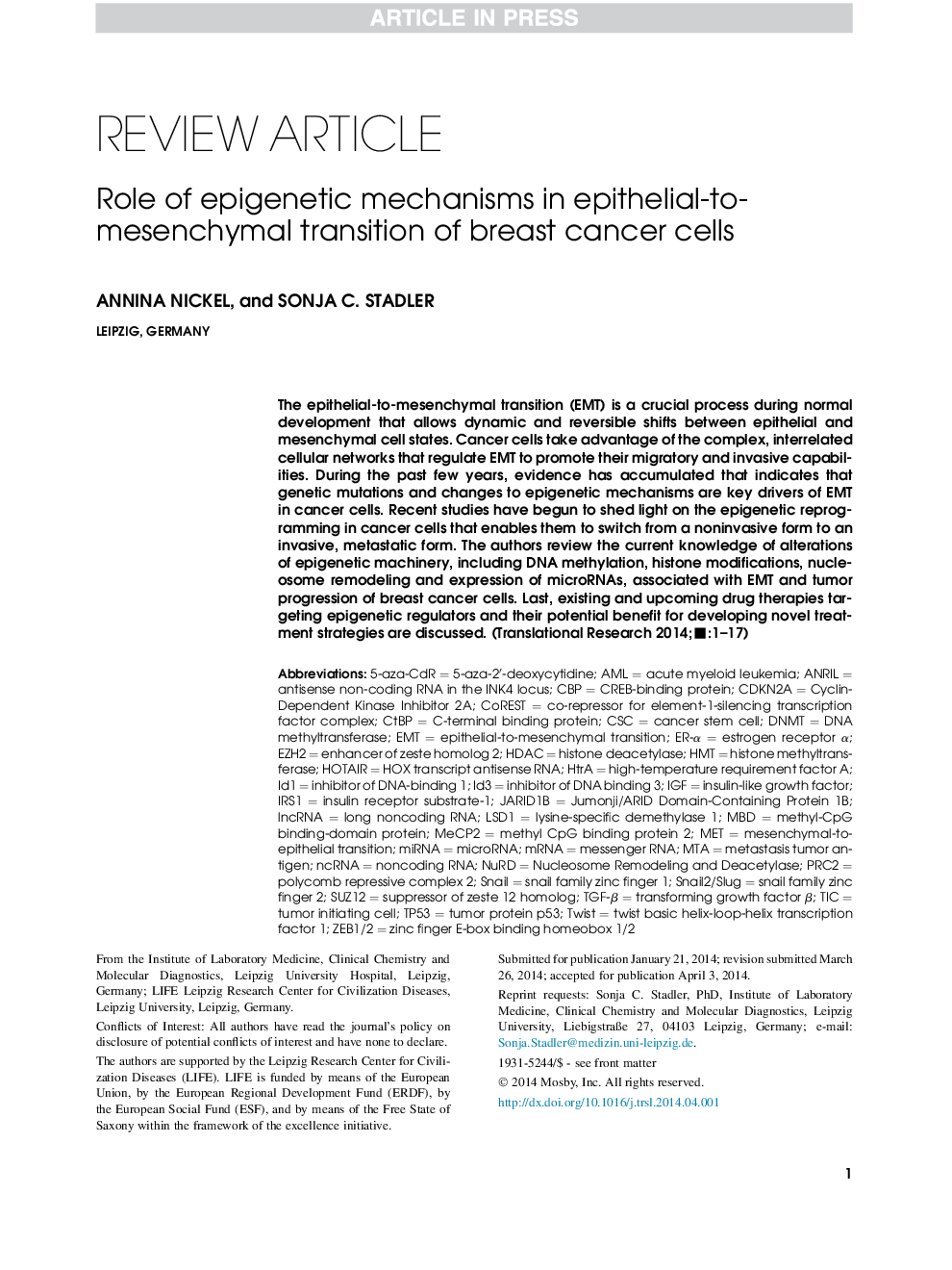| Article ID | Journal | Published Year | Pages | File Type |
|---|---|---|---|---|
| 6156133 | Translational Research | 2015 | 17 Pages |
Abstract
The epithelial-to-mesenchymal transition (EMT) is a crucial process during normal development that allows dynamic and reversible shifts between epithelial and mesenchymal cell states. Cancer cells take advantage of the complex, interrelated cellular networks that regulate EMT to promote their migratory and invasive capabilities. During the past few years, evidence has accumulated that indicates that genetic mutations and changes to epigenetic mechanisms are key drivers of EMT in cancer cells. Recent studies have begun to shed light on the epigenetic reprogramming in cancer cells that enables them to switch from a noninvasive form to an invasive, metastatic form. The authors review the current knowledge of alterations of epigenetic machinery, including DNA methylation, histone modifications, nucleosome remodeling and expression of microRNAs, associated with EMT and tumor progression of breast cancer cells. Last, existing and upcoming drug therapies targeting epigenetic regulators and their potential benefit for developing novel treatment strategies are discussed.
Keywords
PRC2ANRILCBPMBDMTATICDnmthMT5-Aza-CdRIRS1SUZ12ZEB1/2TP53CDKN2AEZH2ncRNAHtrALSD1mRNACSCantisense non-coding RNA in the INK4 locusTGF-βAMLJARID1BIGFlncRNAMecp2NuRDHDACId3ER-αHOX transcript antisense RNACtBP5-Aza-2′-deoxycytidineDNA methyltransferaseId1messenger RNAnoncoding RNAlysine-specific demethylase 1Mesenchymal-to-Epithelial Transitioninsulin receptor substrate-1Nucleosome Remodeling and DeacetylaseTransforming growth factor βenhancer of zeste homolog 2tumor initiating celltumor protein p53EMTSnailcancer stem cellLong noncoding RNAInsulin-like growth factoracute myeloid leukemiaMETcyclin-dependent kinase inhibitor 2AMicroRNAMiRNAHOTAIRhistone deacetylaseHistone MethyltransferaseCREB-binding proteinC-terminal binding proteinmethyl CpG binding protein 2Twistpolycomb repressive complex 2CoRESTepithelial-to-mesenchymal transitionEstrogen receptor α
Related Topics
Health Sciences
Medicine and Dentistry
Medicine and Dentistry (General)
Authors
Annina Nickel, Sonja C. Stadler,
